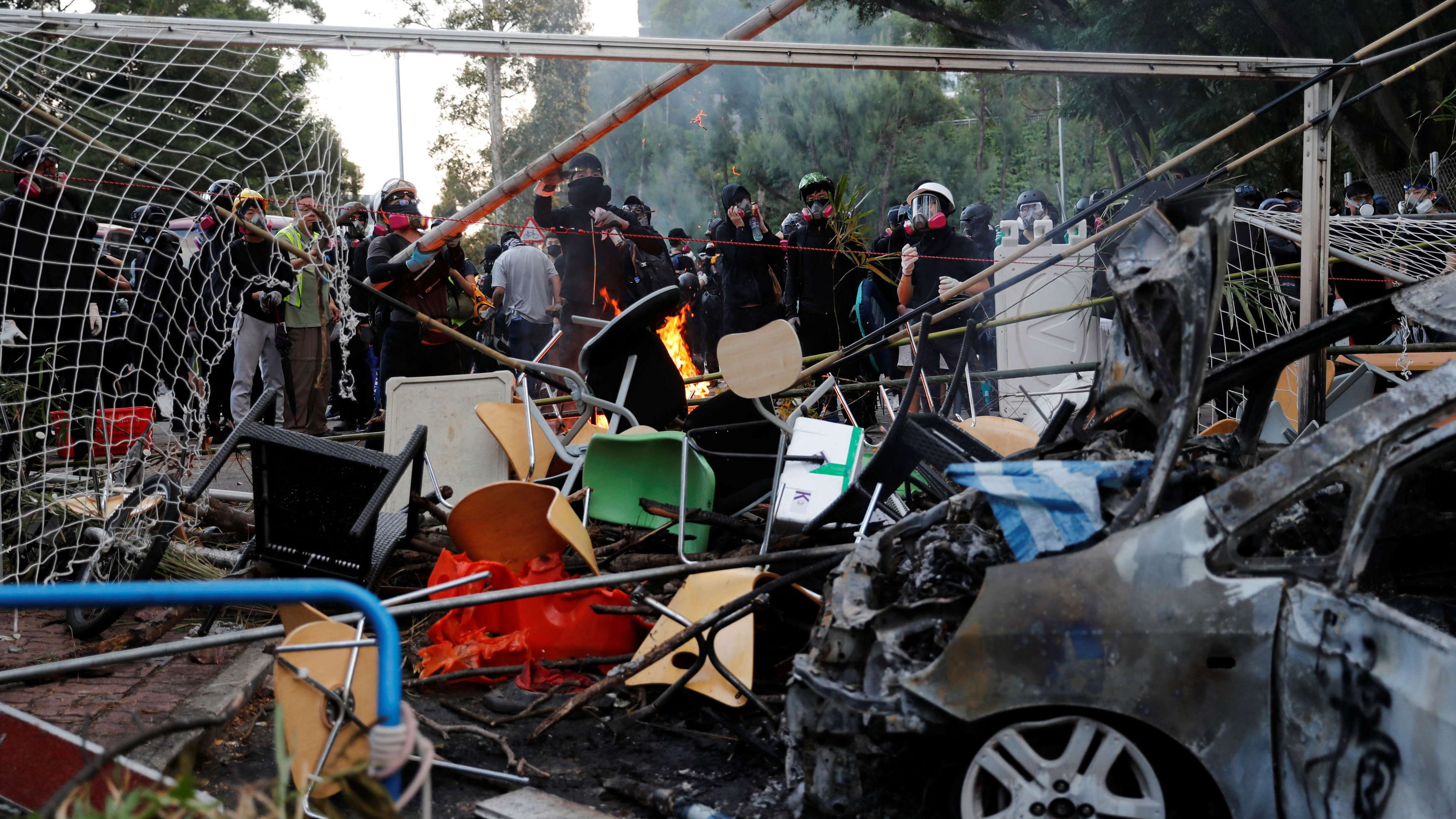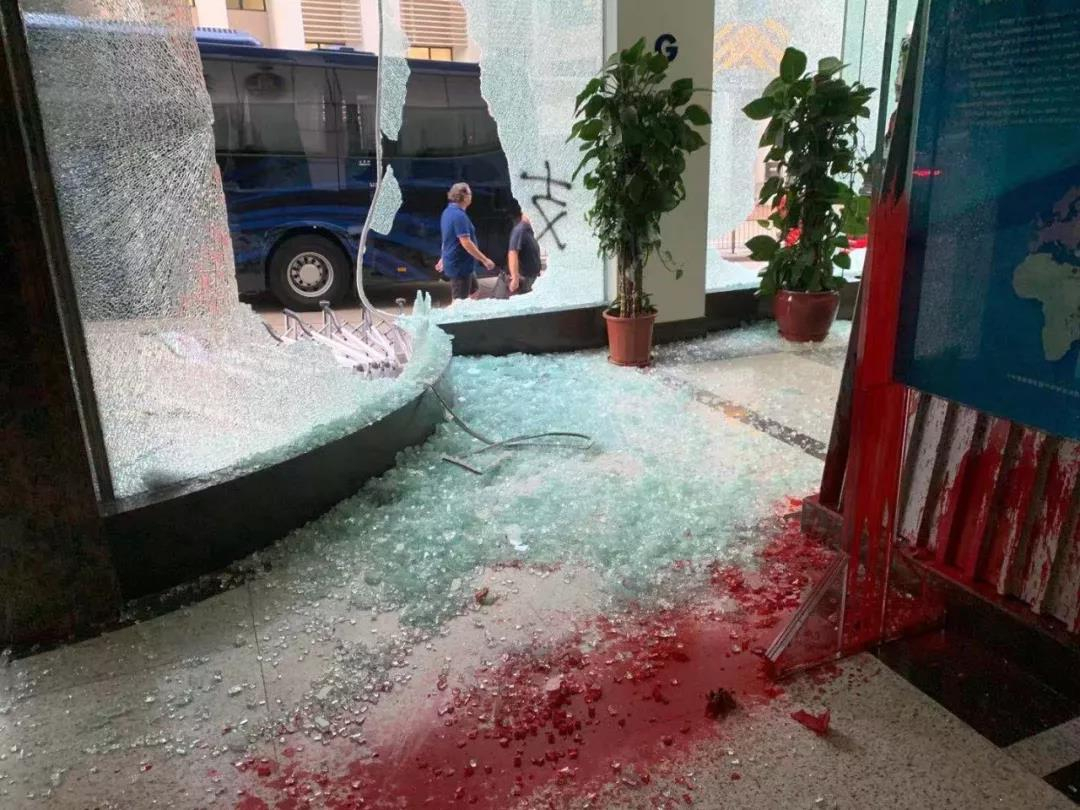
Editor's note: Dr. John Gong is a research fellow at Charhar Institute and professor at the University of International Business and Economics. The article reflects the author's opinions, and not necessarily the views of CGTN.
The last few days represent a dark chapter in the history of Hong Kong. Rioters have now been verging on terrorism. A man arguing with those who were smashing subway gate-control equipment was set on fire by a thug on November 11. He was quick to get rid of his burning clothes to escape this horrendous murder attempt, but still suffered severe burn injuries nevertheless.
After months of vandalizing and sabotaging public properties, those black-clad protestors have taken lawlessness to a whole new level. Mass riots have caused severe disruptions in this beautiful city as rioters set up illegal road blocks everywhere. Several fires also broke out, including one in an expressway tunnel. Given the current circumstances, the education bureau in the city has decided to suspend classes in all schools till Sunday.
At several universities in Hong Kong, black-clad thugs, including some local students, have blocked the campuses from police and ransacked facilities, terrorizing mainland students and faculties along the way. It is reported that the Hong Kong police is now organizing the retreat of mainland students to Shenzhen.
Rioters are on a rampage. They are bent on destroying the city. Mainland people in Hong Kong are becoming refuges in their own city, in their own country.
Sadly, what happened in this city also suffers from the biased coverage of the Western media. For example, the first live shot was fired by the Hong Kong police on November 11 – at a black-clad man who, based on the released video footage, was clearly attempting to snatch the policeman's gun while the policeman was arresting another man illegally blocking a bus.

Anti-government protesters smashed windows and vandalized Xinhua News Agency office in Hong Kong SAR, China, November 2, 2019. /Xinhua Photo
Anti-government protesters smashed windows and vandalized Xinhua News Agency office in Hong Kong SAR, China, November 2, 2019. /Xinhua Photo
Some Western media outlets used a snapshot photo of the video footage that appears to indicate the man who was shot did not have any intention of attacking the police. This, however, constitutes a distortion of what really happened. The policeman who shot him was acting in self-defense.
One of the key demands protesters are fighting for is to redress the so-called excessive use of force by the police. However, if one studies how the police in Los Angeles, New York City or any American city responds to such heinous crimes, one would possibly characterize Hong Kong police's reaction as wimpy. Hong Kong police, which have been very restraint during the protests, is our hope of restoring law and order in this city.
In the meantime, we also have to wonder how the fake news in and outside of Hong Kong have played a role in creating the issue of "police brutality." For instance, Washington Post reported on November 12 that a poll from the Chinese University of Hong Kong, conducted between October 8 and October 14, showed that a big percentage of respondents believe police have used excessive force.
However, I believe that has a lot to do with the fact that police are portrayed this way in the media and they are seen as the bad guy. In a similar vein, the despicable maraud of the Chinese University of Hong Kong campus on November 12 was depicted as a heroic student defense operation of the campus against police attack in the local Apple Daily.
Michael Chugani, a television host quoted by Washington Post, went as far as glorifying violence as standing on moral high ground, because "they (protestors) were forced into using violence after Lam ignored their peaceful voice."
The political challenge in Hong Kong is enormous. But as a nation that proclaims to be united under a common destiny, we will have to deal with it. Like treating a cancer, there is no easy cure. The solution for Hong Kong will have to be multi-faceted and long-term in nature.
(If you want to contribute and have specific expertise, please contact us at opinions@cgtn.com.)